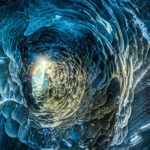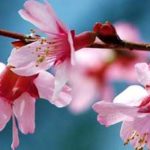Best Canon Lenses for Wedding Photography:
With weddings, there are no “do overs” and missing that perfect shot could mean a permanently missed opportunity. With this in mind it’s important for amateur and professional photographers to have the right kind of lens to suit the varying needs of the event.
- Canon EF 200mm f/2L IS USM Telephoto Lens – features powerful performance and fast autofocus, as well as two stabilizer buttons to produce sharp and clear images every time.
- Canon TS-E 45 mm Lens – A unique tilt shift lens allows freedom to capture beautiful wedding shots in creative and unconventional ways, with super sharp images and adjustable tilt-shift planes.

“Canon EF 50mm f/1.2” captured by Thomas Hawk
The Best Canon Lenses for Sports or Action Shots:
Shooting high-action events require on-the-spot configurations and super-fast autofocus details to capture the nuances of the moving subjects.
- Canon EF 70-200mm f/4 L IS USM Lens– This lightweight lens offers superior performance with advanced image stabilization (IS) and low apertures perfect for capturing fast moving subjects.
- Canon EF 400mm f/4 DO IS USM Super Telephoto Lens – Super image stabilization and diffractive optics combine with a fast and reliable auto-focus to capture the best sharp images in action and sports photography.
The Best Canon Lenses for Portraits:
Portraits are the windows to the soul of the photographer’s subject and present a challenging and beautiful medium for translating the often unseen world of what lies beneath the mundane surface of people.
- Canon EF 85mm f/1.2L II USM – A versatile lens offering beautiful color rendition and depth of field; perfect for portrait work or semi-stationary subject matter.
- Canon EF-S 17-55mm f/2.8 IS USM Lens – Meets the demands of professional and amateur work, this highly versatile lens is suited to a variety of settings including portrait work with a wide zoom range and IS technology.
The Best Canon Lenses for Low Light:
Low light situations present a unique set of challenges as well as stunning opportunities to create and capture the rare and beautiful often concealed under the veil of shadow or lack of light.
- Canon TS-E 24mm f/3.5L II Ultra Wide Tilt-Shift Lens – Refinement and excellence are key elements in this unique lens with 8.5 degrees of tilt and 12 mm of shift to capture the best in perspective work.
- Canon EF 16-35mm f/2.8L II USM Ultra Wide Angle Zoom Lens – Another excellent selection featuring crisp and clean images with a stunningly quick autofocus feature.
The Best Canon Lenses for Beginners:
For those new to the field of photography, it’s important to balance professional performance with adaptable and practical application.
- Canon EF 50mm f/1.2 L USM Lens – A highly versatile lens makes this a perfect lens for beginners looking for a high performance output with ease of use.
- Canon EF 70-300mm f/4-5.6L IS USM UD Telephoto Zoom Lens – An excellent and flexible investment for the serious amateur with an interest in a variety of photography mediums.
The Best Canon Lenses for Landscape Photography:
Landscapes are the artistic statement of the natural and man-made world, requiring the elegance and sophisticated approach of a suitable lens.
- Canon 14mm f/2.8L II USM Ultra-Wide Angle Lens – With a round six blade aperture and flare-reducing lens coating, this specialized lens allows for unique panoramic shots without fisheye or linear distortion.
- Canon TS-E 90mm Tilt Shift Lens – Open the door the new creative possibilities with a tilt and shift axis of 90 degrees and an adaptable plane of focus.
About the Author:
In choosing the best Canon lenses for your wedding, portrait, low light, or action shots, review the pros and cons for each lens and how amateurs and professionals have utilized them in their photography work at http://photo-help.com/canon/top-best-canon-i-eos-canon-lens-lenses-review-reviews/. The comparisons and reviews by real photographers will help you decide which piece of lens equipment is best suited for your creative style and what lens is most practical for your photographic needs. Be sure to take advantage of the opportunity to read real responses about the pros and cons of each lens and the benefits which can directly translate into professional photographic results.
Like This Article?
Don't Miss The Next One!
Join over 100,000 photographers of all experience levels who receive our free photography tips and articles to stay current:






Some articles!
Given your rather lame recommendations I’d like to ask you: (ie, in case you’ve decided to man up and reply to all the well-founded criticism over here) have you ever used each of those lens setups under those very specific situations?
I’m sorry but I can’t, for the life of me, somehow picture one walking through a wedding reception hand-holding a hefty 200mm f/2.0 lens. And it’s even harder to imagine the same hypothetical adventurer having to use a monopod in the ever-crammed space in a church FFS! But maybe you’ve actually managed that somehow, who knows?
But what really have turned your article into laughing stock was indicating the Canon 50mm 1.2 for beginners! What beginners? Millionaires willing to show off said expensive gear on the parties they throw in their penthouses!?
What is your lens recommendation for a beginner photograhper shooting a beach wedding? She has the Cannon Rebel XS camara
This whole article is very sad. Where is the EDITING??? This should never have been posted as the author has some weird agenda or just does not know what he is talking about!!! I am not opposed to buying the best professional quality lenses that you can afford, but no beginner should be using L lenses until they know for sure what their main type of photography will be. I knew within the first six months that wildlife and landscape would be my areas of interest, so I upgraded at that point to the 100-400mm L series lens and added the 24-70mm L series for landscapes and general use. This has worked well for me, but $3000 US was quite an investment. In reality I need the 500mm f/4.0 L series but that will be a while for me saving up to get it. If I had bought the 50mm f/1.2 right away, it would get the same use as the 50mm f/1.8 that I actually bought — NONE. So I wasted $99 US instead of the price of an L series lens!!!
Why for action sports photography a f4 70-200 and not the f2,8? Weird choices. Who’s this article advising? The pro, the demanding hobbyist or the beginner and their possible budgets.
I have to agree with above comments,i shoot a few wedding a tear and i use canon 24-70 2,8l , canon 85 1.8 , canon 135 f2l ,and a 70-200 f4l and that siuts me for what i do, the only other lens i would like would be a 50 1.4 .
regards sean
Lens for beginner frankly for the combination arsenal , most of the beginner will have a x1.6 crop factor advantage, 50mm f/1.8 as well with the 70-300mm , 75-300mm or 55-250mm is the ultimate choice for the budget shooting which also able to produce the same quality of shot as well. I don’t think 50mm f/1.2L is a wise choice at all.
Any response Igor? BTW, what is everyone’s recommendations for Nikon in different scenarios?
I concur that this article is totally bunk. I know lens choices are a matter of opinion but honestly! Lets look at what lenses would be considered the “standards” for a few of these scenarios.
Wedding Photography: The standard lenses for a wedding photographer with out question are the 24-70 f/2.8 and the 70-200 IS f/2.8. Both lenses offer excellent AF speed, and ample lens speed both attributes which are imperative for shooting emotionally charged moments during a wedding. I suspect that the author has never actually tried to manually focus a lens in a fast moving environment such as a wedding so a TS lens is an asinine suggestion. I have also seen wedding photographers shoot 135mm f/2.0 and a 35mm f/1.4. This lens combo definitely gives you the lens speed but you are going to be moving around a lot with those primes which makes for sore feet at the end of a looooong day.
Sports Photography: Most sports photographers use a 300mm f/2.8 on one camera and either a 70-200mm f/2.8 on their other body or a wide angle lens like the 16-35mm f/2.8 for when the action gets up close and personal. Shooting indoor sporting events you need the extra stop that the f/2.8 gets you over the f/4.0. I’m not sure why they suggested the 400mm DO lens? Sport shooters are almost always going to have their big lens on a monopod so weight savings by using the DO lens is negated and the there is no comparison in sharpness between the 400mm DO lens versus either the 400mm f/2.8 or the 300mm f/2.8.
Lenses for Beginners: I agree that the 70-300 would be a good, but rather expensive investment for a beginner but the 50mm f/1.2!!!??? The 50mm f/1.2 lens is notorious for being soft, and takes an exorbitant amount of time for auto focus to lock on if it ever does. This lens also has a price tag of $1500. Why wouldn’t the author recommend the $300 50mm f/1.4 lens that has hundreds of 4-5 star reviews on B&H or Amazon? Or how about the $100 50mm f/1.8 lens? Seems much more reasonable for a “beginner” to save $1400 bucks and only loose 1/2 a f stop.
Landscape Photography: Personally I would say that the 17-40mm f/4.0 is the a decent landscape lens and at only $700 its the cheapest “L” series lens in the Canon line up giving you weather sealed protection which could be very useful out in the wild. While the 16-35mm f/2.8 is probably the “standard” landscape lens, a large aperture is not a necessity for shooting landscape photos. How often do you shoot at apertures less than f/8.0 or f/11 when taking landscape photographs? I do think a tilt shift lens would make a nice addition to a landscape photographers arsenal but I’m not sure the 90mm would be my personal choice. I think a better suggestion might be the 24mm TS lens. I also feel that the 14mm is a very very specialized lens and is a poor recommendation as the “best” lens for a landscape shooter. Its got a $2200 price tag to boot!
Overall I would say that either the author put pieces of paper with all of Canon’s lenses in a hat and drew them out randomly and assigned them to specific photography groups, or the author was trolling.
You nailed it.
50mm 1.2 for a beginner is completely absurd.
Why is wildlife always left out of these types of articles?
I must agree with these comments. Not an accurate list at all in my opinion. Poorly researched.
I am going to have to agree with all the other comments above. There are many lenses mentioned that just do not fit in the “Best” for a specific purpose category. I honestly do not know why a TS lens is in the wedding photography list. I’ve shot loads of weddings and not once used a TS lens. TS lenses are more suited for architecture and landscapes. If you want to get creative in a wedding use a Lensbaby or some other specialty lens, but then again those are not the “Best” for wedding photography, just another one of the added tools in the bag that could be used.
Best lenses for a wedding in my opinion are the following 5 lenses:
16-35 f2.8 when you want to go very wide (the 17-40 f4 also very good)
24-70 f2.8 for mostly everything (stays on the main body the whole time basically)
85 f1.2 for portraits
70-200 f2.8 IS for ceremony and more candid stuff
100 f2.8 IS for macros of flowers, rings, details
That’s not to say you need all 5 of these lenses but having these will give you full coverage for anything that comes your way on that day.
I’ll have to agree with the others.. This is a terrible list. if you want to recommend a lens for beginners you would suggest the 50mm 1/8 ($100)… and who buys a f3.5 lens for low light work?
most ridiculous article i’ve read in a loooong time. a 200 2.8 and a 45 tilt shift for a wedding? really? one weighs like a ton, the other is manual focus. nice job.
this article is crap!
a 1,5k lense fpr beginners and other shot… c’mon!
anyway… who gives a shit on cannon lenses… they are all for
beginners and noobs… pros use nikon
not true – I’ve never used Nikon in the 30 years ive been shooting..at least not for any work that I am doing for others and not just for ‘fun.’ Also, Scott Kelby, a man whom you know if you are a “professional” switched his gear from Nikon to Canon… read his article about why he did so…
Weddings, the 24-70mm is way more versatile and usable than either of the options. Pair that with the 85mm f/1.2.
17-55mm as a best for portraits? If you want to stretch usability, the 100mm macro L IS would be a better choice. The wideness and slowness of the 17-55 doesn’t cut it.
A f/3.5 and f/2.8 under the low light category? Perplexed.
And I agree with Rob on the beginners category. How about the 50mm f/1.8? And the other option should be an IS kit lens.
The landscape category was pretty spot on though.
While these are all excellent lenses, your title should probably continue with “…if money were no object”
I mean you recommend a $1,500 lens (Canon EF 50mm f/1.2 L USM) as a beginner lens?